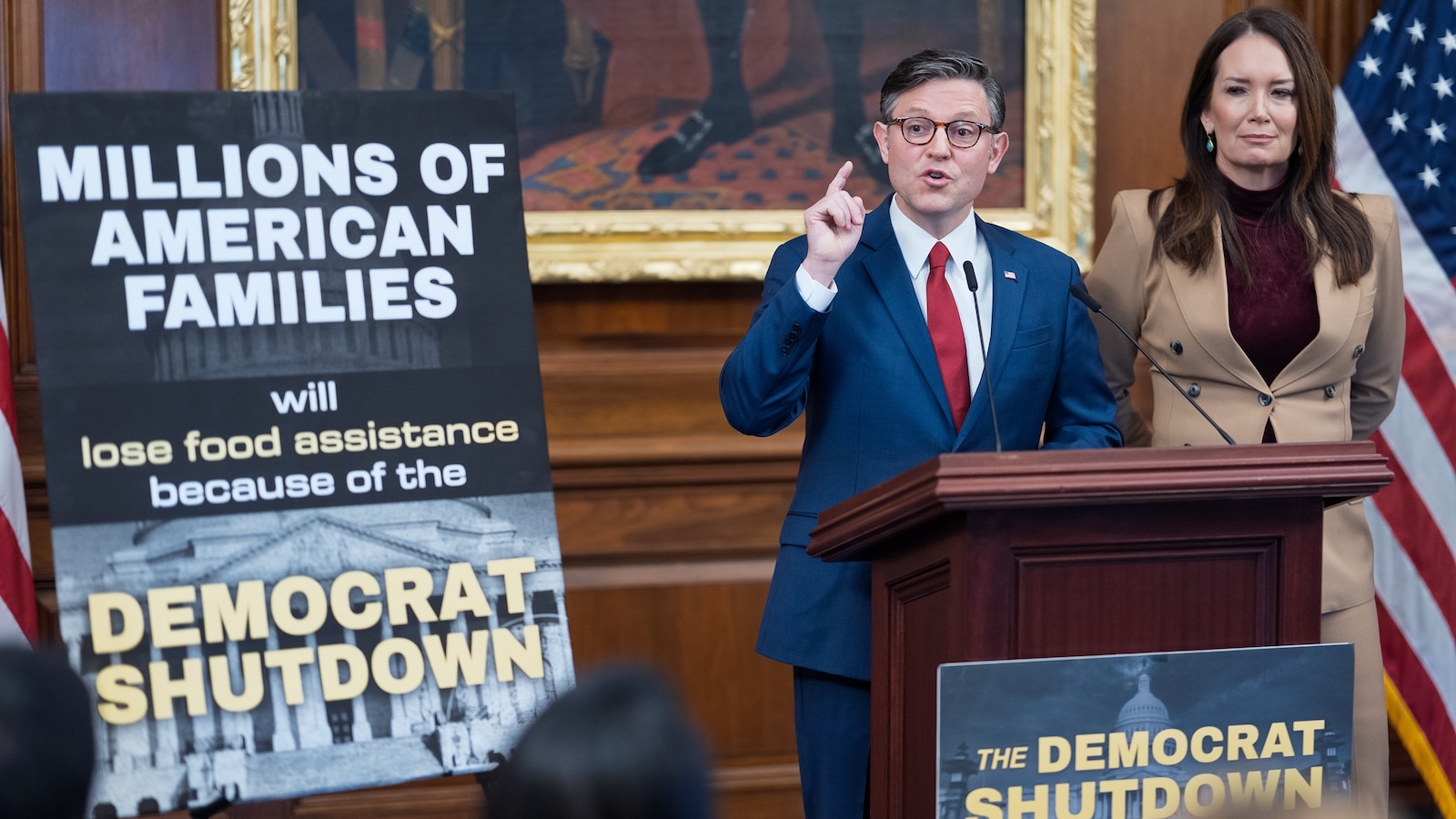A federal judge in Rhode Island has temporarily ordered the Trump administration to continue funding benefits for SNAP, the federally funded Supplemental Nutrition Assistance Program.
“The court is orally at this time, ordering that USDA must distribute the contingency money timely, or as soon as possible, for the November 1 payments to be made,” said U.S. District Judge John J. McConnell Jr.
After an hour-long emergency hearing, Judge McConnell ruled that the suspension of SNAP funding is arbitrary and likely to cause irreparable harm, citing the “terror” felt by Americans who are scrambling to meet their basic nutritional needs.
“There is no doubt, and it is beyond argument, that irreparable harm will begin to occur — if it hasn’t already occurred — in the terror it has caused some people about the availability of funding for food for their family,” he said.
The decision comes one day before the U.S. Department of Agriculture, which runs the SNAP program, was scheduled to freeze SNAP payments due to the ongoing government shutdown. SNAP generally requires $8.6 billion in funding every month to provide 41 million Americans benefits and administer to the program.
Despite the ruling, it’s not immediately clear how the judge’s decision will be implemented, and if it will take effect in time to help millions of Americans who rely on the funding.
Judge McConnell ordered the Trump administration to continue paying for the program using emergency funds, and to notify the court by Monday how SNAP will be funded.
Speaker of the House Mike Johnson is joined by Secretary of Agriculture Brooke Rollins at a news conference to talk about SNAP food aid benefits on day 31 of the government shutdown, at the Capitol in Washington, Oct. 31, 2025.
J. Scott Applewhite/AP
Ruling that stopping SNAP funding violated the Administrative Procedure Act because the funding decision was arbitrary and capricious, Judge McConnell said, “There has been no explanation, legitimate or otherwise that’s consistent with the APA as to why the contingency funds should not be used.”
A coalition of local governments, nonprofits, small businesses, and workers’ rights organization filed suit Thursday to challenge the pause in funding, arguing that the Trump administration has “needlessly plunged SNAP into crisis” by suspending benefits beginning Friday, despite having emergency funds that could be tapped.
“Americans will not be able to feed their families, food pantries will be overwhelmed, organizations will be forced to divert resources from core programs to accommodate those in need of assistance, and small businesses will lose substantial revenue that is critical to maintaining their labor force and supplier relationships,” they wrote in their lawsuit.
The administration has argued that the lapse of funding will cause irreparable harm and violates a federal law that prohibits arbitrary government actions.
The ruling came as a federal judge in Boston, in a separate case, ruled that the Trump administration’s attempt to suspend SNAP funding is “unlawful,” but declined to immediately order that the program be funded.
U.S. District Judge Indira Talwani reserved judgment about whether to issue a temporary restraining order, instead asking the Trump administration to advise the court whether they would authorize reduced SNAP benefits for November.
She ordered the Trump administration to answer her question about reduced SNAP funding by Monday.
“For the reasons stated below, Plaintiffs have standing to bring this action and are likely to succeed on their claim that Defendants’ suspension of SNAP benefits is unlawful,” she wrote.
“Where that suspension of benefits rested on an erroneous construction of the relevant statutory provisions, the court will allow Defendants to consider whether they will authorize at least reduced SNAP benefits for November, and report back to the court no later than Monday, November 3, 2025,” Judge Talwani said.
The Trump administration was expected to appeal both of Friday’s rulings.

